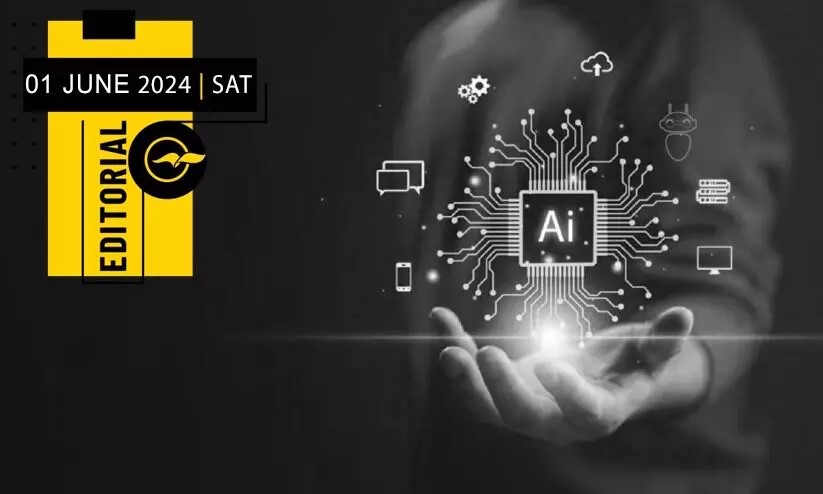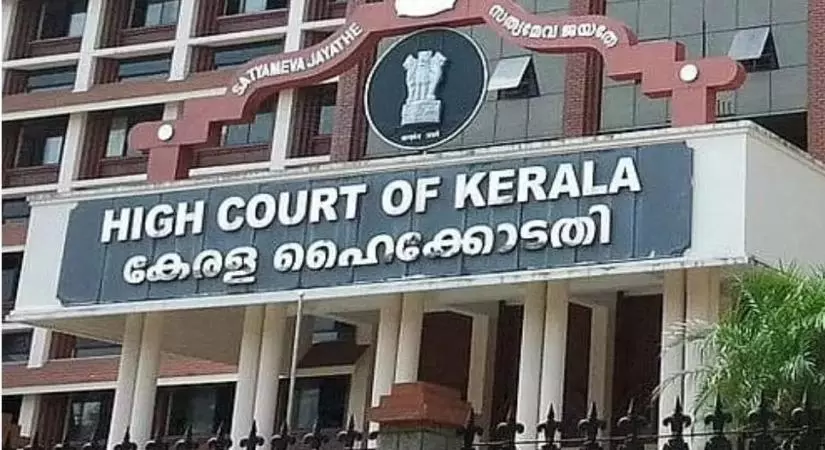
A Kerala story of AI syllabus
text_fieldsThe rapid progress in technology in the 21st century is often referred to as the "Fourth Industrial Revolution." Unprecedented advancements in artificial intelligence (AI), gene editing, and robotics have propelled human technology and living standards forward by centuries. This is evident when comparing the current state of the world to that of a quarter-century ago. In this context, the technology that has the most direct impact on our daily lives is undoubtedly artificial intelligence (AI). AI has become a reality with the advent of "intelligent, rational, and common-sense" fifth-generation computers. Numerous applications of this technology can be found even in mobile phones. AI has become an indispensable part of human life, directly influencing various sectors. Moreover, AI is making its presence felt in art, literature, and cinema, sometimes to the extent of rendering humans irrelevant. In this sense, the possibilities and implications of AI, as well as the challenges it poses, are a matter of public debate. Therefore, we cannot avoid confronting this technology. The state's Department of General Education is taking a proactive approach in this direction. Our children will formally learn about this technology in the new academic year.
As part of curriculum reforms, Artificial Intelligence (AI) education has been introduced in the syllabus for 7th graders in the state this year. The new changes in the Information and Communication Technology (ICT) textbook will initially be available to over four lakh students in Kerala. This is a first-of-its-kind step in India. While some private educational institutions in several states have prepared their own syllabuses for AI education on their own initiative, this is the first time AI has become part of the curriculum in the public sector. Therefore, the Kerala State Education Department and trainers who have worked behind this initiative deserve all the appreciation. The syllabus is designed not just to impart knowledge about AI but also to shed light on the possibilities of this technology. For example, take the chapter on 'Computer Vision': its design enables children to prepare themselves by developing AI programs that recognize human facial expressions. By the end of the course, each child creates their own programs. Software is provided for this that can develop up to seven expressions that appear on a person's face. These sections help to improve children's analytical and problem-solving skills. Children are already learning visual programming using the free software Scratch as a computer language; the new curriculum aims to provide training in programming, AI, and robotics by incorporating it into the 'Picto Block' package. If this continues in the coming years, a student completing secondary education can be assured of general knowledge in the field of AI.
Education and its methods must be constantly reformed in accordance with the changing world and world order. This is essential for the progress of society. In today's world, where AI and robotics are driving forces behind global development, incorporating these technologies into curricula is not only timely but also essential for the survival of humanity. It is significant that our authorities have recognized this reality. Just as AI technology is evolving and growing rapidly, so too must these curriculum reforms. Therefore, there must be continuity in current decisions. Some people view artificial intelligence with suspicion and criticism. Even as we say that it will pave the way for the comprehensive progress of humanity, there are factual and rational concerns about the potential major consequences of this technology. The current methodology of introducing technology through the wonders of AI does not address these concerns. Children need to know this too. Only then will technology centred on artificial intelligence and its applications be fully beneficial to society. In the next phase, the syllabus must include lessons that lead children to such thoughts. Only then can it be called a complete model.







